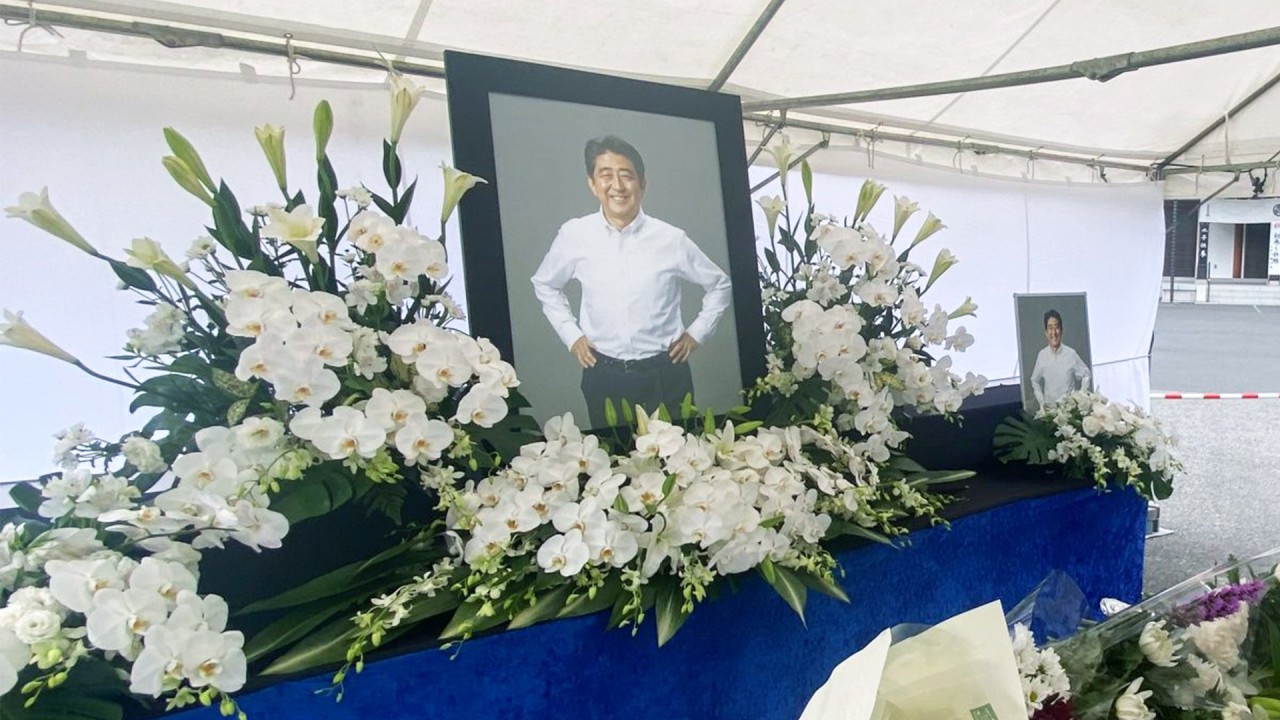
China-Japan relations require greater care
- The absence of a Beijing official at the funeral of assassinated former prime minister Shinzo Abe was a telling reminder of the strained ties between the two countries
The absence of a Chinese official at the recent funeral of assassinated Japanese political icon Shinzo Abe was a telling reminder of the state of relations between the countries. Many nations sent representatives to the private ceremony.
Taiwan’s vice-president was also controversially there, but China said it received no invitation from Tokyo. However, President Xi Jinping sent his condolences to Prime Minister Fumio Kishida, and his wife, Peng Liyuan, did likewise for widow Akie Abe.
Vice-foreign minister Ma Zhaoxu also paid tribute at Japan’s embassy in Beijing. Neighbours with such strong economic links and exchanges should strive to maintain harmonious ties, even in challenging times.
Abe was Japan’s longest-serving prime minister and, after leaving office, the leader of the biggest faction in the ruling Liberal Democratic Party (LDP). Upper house parliamentary elections on Sunday, just two days after he was shot dead, gave most seats to the LDP and junior coalition partner Komeito.
They have overwhelming numbers in both chambers and Kishida now has a stable power base from which to direct policies. High on the agenda is changing the pacifist constitution, which requires a two-thirds majority.
Xi highlighted Abe’s efforts to improve relations with China; he was the last Japanese prime minister to visit Beijing and the president accepted an invitation to go to Tokyo in 2019, although that never happened. But the former leader was also a nationalist who saw China’s growing might as a threat.
He built stronger ties with the United States, India and Australia through the Quad security alliance, advocated relations with Taiwan and sought to amend Article 9 of the constitution, which renounces the right of war and offensive forces.
Kishida has seldom called for constitutional amendments, although at a recent Nato summit he said he felt “a strong sense of crisis that Ukraine may be East Asia tomorrow”. Without naming China, he was correlating Russia’s invasion of Ukraine to claimed Chinese provocations in the East and South China seas.
In the 50th year of the normalisation of Sino-Japanese diplomatic relations, such words are worrying. So important a relationship should be handled prudently.


